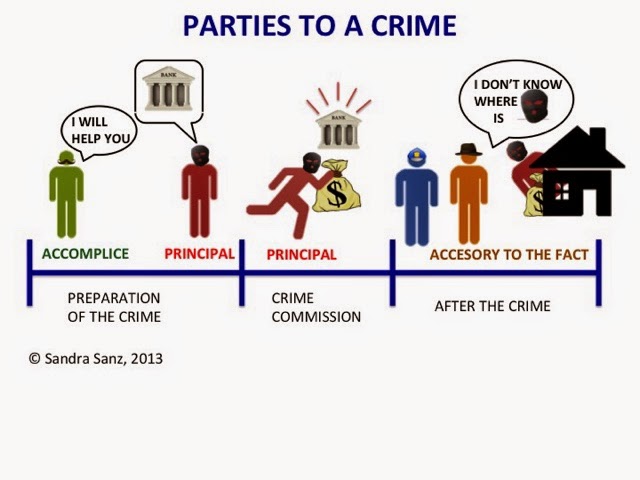Demurrer to Evidence
These past few days, I busied myself in front of my computer, laptop or even in my ipad. Not because I was hooked lately to clumsy-flappy bird, but blame it to my caseload. At least I have something to blame on. I have actually 3 criminal cases due for submission of their demurrers to evidence.
As a defense lawyer, preparing demurrer to evidence is one of the tedious and time-consuming parts of litigation. You need to scavenge voluminous files of the case inorder to present a meritorious demurrer to evidence. Because once the demurrer is impressed with merits, it will dismiss the case.
What is this demurrer to evidence?
According to this site http://thelawdictionary.org/demurrer-to-evidence/, Demurrer to Evidence is analogous to a demurrer
to a pleading. It is an objection or exception by one of the parties in
an action at law, to the effect that the evidence which his adversary
has produced is insufficient in point of law (whether true or not) to make out his case or sustain the issue. (Law Dictionary: http://thelawdictionary.org/demurrer-to-evidence/#ixzz2t4KkkKoV).
It is actually a pleading submitted to the court pointing out that the evidence/s adduced or presented by the plaintiff is/are insufficient to warrant conviction in criminal action or not enough to sustain the issue in civil action. Once approved by the court, the criminal case may be dismissed for lack of sufficient evidence to warrant conviction or to dismiss the civil action for lack of evidence to support the relief.
Generally, in both criminal and civil actions, demurrer to evidence has the same effects and results. But there are important and distinct differences between the two.
Demurrer to Evidence in Civil Case:
According to Rule 33 Section 1 of the Revised Rules of Court of the Philippines:
"Demurrer to Evidence. - After the plaintiff has completed the presentation of his evidence, the defendant may move for DISMISSAL on the ground that upon the facts and the law the plaintiff has shown no right to relief. If his motion is denied, he shall have the right to present evidence. If the motion is granted but on appeal the order of dismissal is reversed he shall be deemed to have waived the right to present evidence."
Demurrer to Evidence in Criminal Case:
According to Rule 119 Section 23 of the Revised Rules of Court of the Philippines:
"Demurrer to evidence. – After the prosecution rests its
case,
the court may dismiss the action on the ground of insufficiency of
evidence
(1) on its own initiative after giving the prosecution the opportunity
to be heard or (2) upon demurrer to evidence filed by the accused with
or without leave of court.
If the
court denies the demurrer to evidence filed with leave of court, the
accused
may adduce evidence in his defense. When the demurrer to evidence is
filed
without leave of court, the accused waives the right to present
evidence
and submits the case for judgment on the basis of the evidence for the
prosecution.
The motion
for leave of court to file demurrer to evidence shall specifically
state
its grounds and shall be filed within a non-extendible period of five
(5)
days after the prosecution rests its case. The prosecution may oppose
the
motion within a non-extendible period of five (5) days from its receipt.
If leave
of court is granted, the accused shall file the demurrer to evidence
within
a non-extendible period of ten (10) days from notice. The prosecution
may
oppose the demurrer to evidence within a similar period from its
receipt.
The order
denying the motion for leave of court to file demurrer to evidence or
the
demurrer itself shall not be reviewable by appeal or by certiorari
before
judgment."
Comparison:
In civil case, there is no need to file a leave of court to file demurrer to evidence of the plaintiff. In criminal case, it is an option for the defense counsel to file a leave of court to file demurrer to evidence of the plaintiff.
What is leave of court? It is actually a permission asked from the court that the accused is intending to file a demurrer, specifically stating therein the grounds believed that the evidences of the prosecution is insufficient to warrant conviction.
If the court denies the demurrer to evidence filed WITH LEAVE OF COURT, the accused may adduce evidences in his defense. When the demurrer to evidence is filed WITHOUT LEAVE OF COURT, the accused WAIVES the right to present evidence and submits the case for judgment on the basis of the evidence for the prosecution.
It is therefore important to file a leave of court first before filing demurrer to evidence in criminal case, otherwise, the accused waives his right to present and adduce evidence in the event that the demurrer to evidence is denied.
In civil case, there is no such requirement. A demurrer to evidence of the plaintiff may be filed with or without prior leave of court to file the same.
The order denying the motion for leave of court to file demurrer to evidence or the demurrer itself shall not be reviewable by appeal or by certiorari before judgment.
The order granting the demurrer to evidence in civil case may be appealed by the aggrieved party. Once the order of dismissal is reversed the defendant shall be deemed to have WAIVED the right to present evidence.
There is no appeal available in criminal case. Once the demurrer to evidence is granted, the order can no longer be appealed because it will violate the right of the accused to DOUBLE JEOPARDY.


Comments
Post a Comment